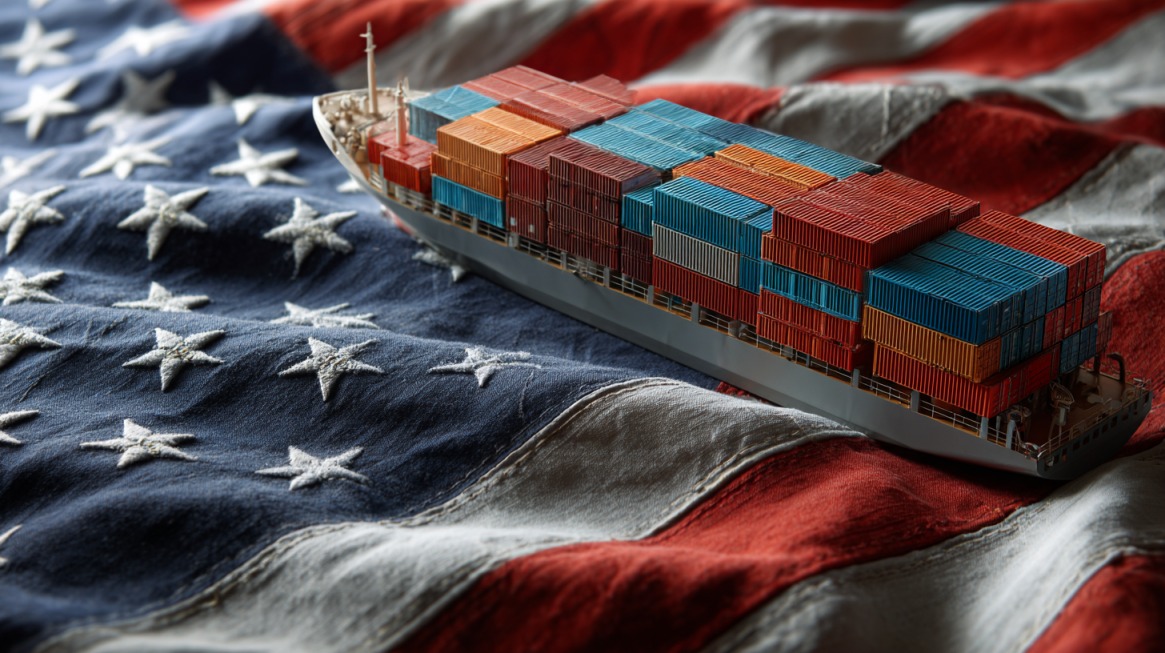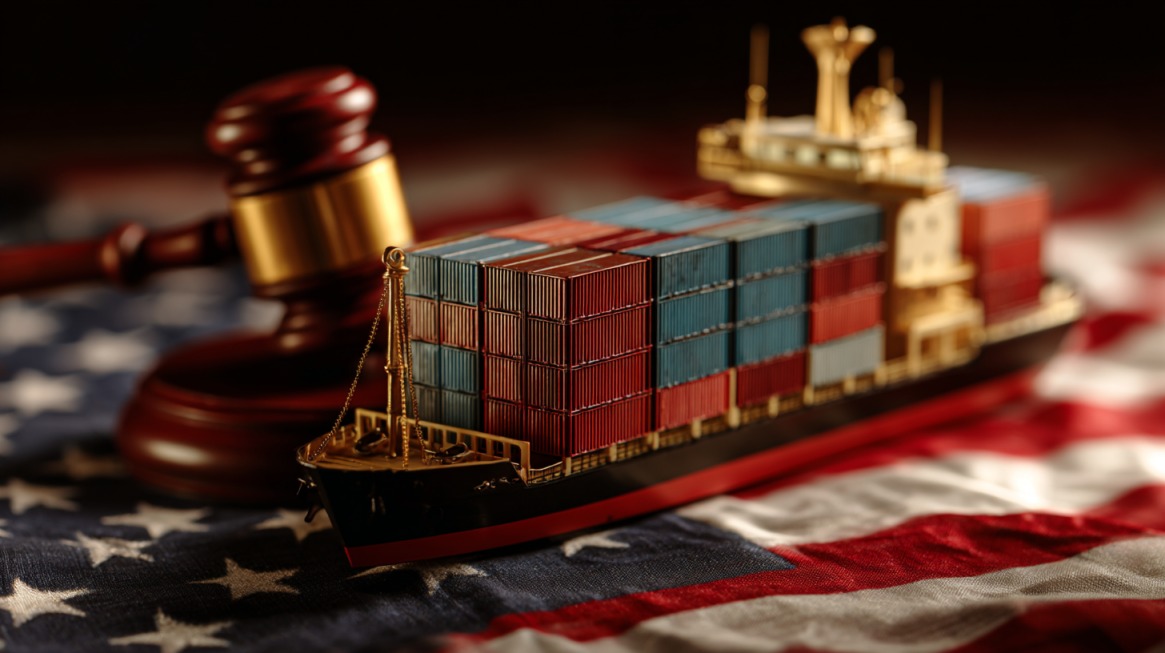Imagine you order an expensive electronic gadget from a sleek-looking website. It ships from overseas, takes weeks to arrive, and when it finally does, it’s defective. You try to contact the seller. No response. The return policy? Useless. And now you’re out hundreds or even thousands of dollars.
You’re not alone.
According to Shopify, global e-commerce sales topped $6.09 trillion in 2024, with millions of Americans buying directly from foreign sellers. But when something goes wrong, most people think: “They’re overseas. There’s nothing I can do.”
That’s not true.
Suing a foreign seller who ships to the U.S. is possible and sometimes necessary. Whether you’ve been scammed, injured, or left in the dark after a transaction, U.S. and international law offer clear paths to legal action. This guide will walk you through those options step by step, with real examples and no legal jargon.
Ready to take back control? Let’s get into it.
1. Do You Have the Right to Sue in the U.S.?

Before you jump into filing a lawsuit, you need to know whether you even have the legal standing to sue a foreign seller in the U.S. court system. It’s not enough to be angry or feel wronged.
The law needs to recognize that you have a valid claim, and that the court has the authority to hear your case.
- Do you have a legal reason to sue?
- Can a U.S. court hold the foreign seller accountable?
We’ll break down both, starting with the most common legal grounds.
Legal Grounds: breach of contract, product liability, fraud
Before you can sue a foreign seller, you need a legal reason to do it. The law calls this a “cause of action,” and in cross-border sales, three causes are the most common.
1. Breach of Contract
This is when the seller doesn’t deliver what was promised. Maybe you ordered a product and never got it. Maybe it arrived broken or completely different from what was advertised. If you paid and held up your end of the deal, this is likely a breach.
2. Product Liability
If the product causes harm, such as physical injury, fire, or property damage, you may have a product liability claim. It doesn’t matter where the seller is located. If their product hurt you and made it into the U.S. market, you could have a case.
3. Fraud or Misrepresentation
Sometimes sellers intentionally deceive. They might lie about a product’s features, its safety, or even whether it exists. If the seller tricked you into buying under false pretenses, that’s fraud, and it’s actionable.
You don’t need to figure out the perfect category right away. A good lawyer can help you frame your claim. What matters most is that there’s real harm, a broken promise, or deception, and that you can prove it.
Personal Jurisdiction Explained

Even if you have a strong case, the court has to have the legal authority to hear it. This is called personal jurisdiction. In simple terms, can a U.S. court tell this foreign seller what to do?
The “Minimum Contacts” Test
Courts look at whether the seller purposely reached into the U.S. market. Did they advertise to U.S. customers? Accept payments in U.S. dollars? Ship products to U.S. addresses? If yes, that’s a strong sign they have “minimum contacts” with the U.S., and a court can likely assert jurisdiction.
Selling on U.S. Platforms
If a foreign seller uses Amazon, eBay, or Etsy to sell directly to American buyers, they’re likely subject to U.S. jurisdiction. These platforms are considered U.S.-based marketplaces, and sellers using them can’t claim they didn’t expect to deal with U.S. laws.
Having a U.S. Website or Marketing in English
Some sellers have their own websites and actively market to U.S. customers. If the site is in English, shows prices in dollars, and offers international shipping to the U.S., that builds the case for jurisdiction.
Courts don’t expect the seller to have an office in the U.S. or pay taxes here. What’s important is whether the seller intentionally did business with U.S. consumers. If so, they can often be sued in a U.S. court.
Forum Selection Clauses
Sometimes, the fine print makes all the difference. If you bought a product and agreed to terms and conditions, there might be a forum selection clause buried in that agreement. This is a clause that says where any legal dispute must be handled.
For example, it might say that any legal claims must be brought in Hong Kong courts or under German law, depending on where the seller is based.
Can a Forum Clause Block Your Case in the U.S.?
Yes, sometimes. If the clause is clear, properly written, and part of a valid agreement, U.S. courts often honor it. But not always.
- It’s hidden or hard to understand
- It’s unreasonably one-sided
- The foreign court wouldn’t give you a fair shot
What If You Never Saw the Clause?
Many sellers hide forum clauses in “terms of service” links that most people don’t read. Even so, courts might still consider those terms binding if you clicked “I agree” during checkout. This is common on international shopping sites.
Before filing a lawsuit, check any receipts, emails, or order confirmations. If you see a forum selection clause, you’ll need to discuss with a lawyer whether you can challenge it or work around it.
State Long-Arm Statutes
Even if a foreign seller has never set foot in the U.S., state laws can still reach them. That’s where long-arm statutes come in. These laws allow state courts to assert jurisdiction over out-of-state or foreign defendants who have certain kinds of contact with the state.
How It Works
Each state has its own version of a long-arm statute.
- Sells or ships products into the state
- Causes harm to someone in the state
- Has a business relationship with someone in the state
It’s About Fairness
Courts still need to decide if it’s fair to make the seller defend a case in the U.S. This usually comes down to whether the seller knew or should have known they were doing business with someone in a specific state.
Long-arm statutes don’t guarantee you can sue, but they’re a powerful tool for holding foreign sellers accountable when their business reaches into the U.S.
2. Who to Sue: The Right Entity
Once you’ve confirmed you have a legal basis and the court has jurisdiction, the next question is just as important: Who exactly are you suing?
In cross-border disputes, sellers often hide behind multiple layers. A website might be owned by one company, the payment processed by another, and the product shipped by a third. To build a strong case, you need to identify the correct party and, in some cases, more than one.
Let’s look at your options.
Suing the Foreign Seller Directly

When it makes sense
If the seller is the one who:
- Listed the product
- Took your payment
- Shipped the order
…then you may be able to sue them directly.
This is often the case with small- to medium-sized foreign businesses selling on platforms like Alibaba, Etsy, or their own e-commerce websites. If they did business with you directly, and the transaction harmed you, they can often be named in the lawsuit.
What to consider
Make sure the seller is a real entity. Look for:
- The business name and country
- A company registration number or address
- Who processed the payment
If you only have a storefront name or username, dig deeper. Payment records, shipping invoices, or even tracking info can often reveal the legal name behind the transaction.
Suing the U.S. Distributor or Subsidiary

When it applies
Some foreign companies have official operations in the U.S., either through a subsidiary (a company they own) or through a distributor (an independent business that sells their products).
If a U.S.-based distributor sold you the product, fulfilled the order, or made promises about the product, they can be liable even if the product came from overseas.
Why it helps
- No need to serve across borders
- S. courts will clearly have jurisdiction
- Easier to enforce a judgment if you win
Holding the Parent Company Accountable

The concept of corporate veil piercing
Many large companies use multiple layers of businesses to protect themselves. For example, the parent company may be based in Japan, but they operate in the U.S. through a wholly owned subsidiary. In some cases, courts allow you to pierce the corporate veil and go after the parent company directly.
- The parent company controlled the actions of the subsidiary
- The separation between companies was a legal formality only
- The structure was used to commit fraud or avoid responsibility
Real-world examples
In Lungowe v. Vedanta, a UK court allowed Zambian citizens to sue a parent mining company headquartered in the UK for pollution caused by its Zambian subsidiary. Similar logic applied in Dooh v. Shell and other transnational human rights and consumer cases.
These cases are complex, but they show that even global giants aren’t always untouchable.
3. How to Prepare and File a Lawsuit Against a Foreign Seller
Once you know you have a legal claim and you’ve identified who to sue, the next step is taking action. But before heading to court, preparation is key. Cross-border cases are complex, and the details matter.
This section walks you through the core steps to build a strong case and file it the right way.
Gather and Organize Evidence
Start with the basics
You’ll need to prove what happened, so begin collecting:
- Order confirmations and receipts
- Shipping documents and tracking info
- Emails, chats, or customer service transcripts
- Product photos or videos showing damage or defects
Keep backups of everything. If the website disappears or the seller stops responding, your records become the foundation of your case.
Document your damages
If the product caused injury, property damage, or financial loss, keep medical bills, repair costs, or other records that show how you were affected.
Determine Which Law Applies

Look for governing law clauses
Some websites or contracts include a clause that states which country’s law applies. Even if they don’t, you still need to understand whether U.S. consumer protection laws or international shipping laws will cover your claim.
If your case involves shipping loss or cargo damage, international treaties like COGSA may apply. If the issue is about defective goods, U.S. consumer law might give you stronger protection.
Know Your Legal Deadlines
Every state and country has statutes of limitations. These are time limits on how long you have to file a lawsuit. The deadline depends on the type of case and where it’s being filed.
- 2 to 4 years for breach of contract
- 1 to 3 years for injury or fraud
- 1 year for international shipping claims under COGSA
If you miss the deadline, you may lose your right to sue even if the case is solid.
If the foreign seller’s terms include a summary suit clause, understanding what summary suit under CPC means can help you decide whether that faster process applies to your case.
Draft and File the Complaint

What goes into a complaint
A legal complaint is the document that starts the lawsuit.
- Who you are suing
- What they did wrong
- How you were harmed
- What you want the court to do (damages, replacement, etc.)
Where to file it
Most of the time, you’ll file in a state court. In some cases, such as claims over a certain dollar amount or involving federal law, you may file in a federal court. An attorney can help you choose the best option.
Serve the Defendant Properly
Serving a lawsuit means delivering the complaint to the defendant in a way that satisfies the legal rules. When the defendant is in another country, this can get complicated.
The Hague Convention
Many countries follow the Hague Convention on Service of Process, which sets out the official steps for serving legal documents across borders.
- Preparing the complaint and summons
- Translating them into the defendant’s language if required
- Sending them to the foreign country’s designated central authority
This process can take weeks or even months, and small mistakes can delay or invalidate the service.

Why service matters
If you don’t serve the defendant correctly, the court may throw out your case or delay it until you do. Proper service ensures that your case can move forward without technical issues.
Use Professional Language Support When Needed
International lawsuits often involve language barriers. Whether you’re filing in another country or submitting translated documents, accuracy is everything.
If your documents must be translated or your court appearance involves non-English speakers, it’s critical to work with certified legal interpreters.
Consider Elmura Linguistics for reliable legal interpreting services that meet international standards and court requirements.
4. Legal Processes in Cross-Border Lawsuits
Filing your case is a big step, but the legal process doesn’t end there. Cross-border lawsuits come with their own set of rules that can affect how long the case takes, how much evidence you can access, and whether your win in court can actually be enforced.
This section breaks down the key legal frameworks that apply once your case is underway.
Hague Convention on Service of Process

What it is
The Hague Convention is an international treaty that outlines how legal documents must be served across borders in civil and commercial cases. If the seller is based in a country that is a party to the Convention, you must follow its process unless that country has opted out of certain procedures.
How it works
- You send the legal documents (summons and complaint) to the designated central authority in the foreign country.
- In some cases, you’ll need to translate those documents into the local language.
- The authority delivers the documents to the defendant according to local rules and confirms delivery with an official certificate.
Why it matters
Skipping or mishandling this process can get your case thrown out. Courts take international service very seriously, and defendants can argue they weren’t properly notified if the steps aren’t followed exactly.
Forum Non Conveniens

What it means
Forum non conveniens is a legal doctrine that allows a U.S. court to refuse to hear a case if it believes there is a more appropriate court in another country.
When it applies
If the foreign seller argues that the case should be handled in their home country, and the court agrees, your lawsuit may be dismissed or moved.
- Where the evidence and witnesses are located
- Whether the foreign court is available and fair
- The burden on the U.S. court and legal system
How to respond
You or your lawyer will need to show that the U.S. is the best place to handle the case. For example, if the harm occurred in the U.S., or the product was sold here, that can strengthen your argument.
Carriage of Goods by Sea Act (COGSA)

When it applies
COGSA is a U.S. law that governs the shipment of goods by sea between foreign and U.S. ports. If your case involves cargo damage or a lost shipment, COGSA may come into play.
What it covers
- Limits the liability of shipping carriers
- Sets a one-year deadline to file claims
- Defines what counts as damage and when the carrier is responsible
How it can affect your case
COGSA can make it harder to recover full damages, especially if the carrier relies on its liability limits. But it also gives you a legal framework to pursue compensation for lost or damaged goods shipped by sea.
Discovery Across Borders

The challenge
Discovery is the process of gathering evidence from the other side. In cross-border cases, this can get complicated fast. Some countries have privacy laws or “blocking statutes” that limit what documents can be shared with a U.S. court.
What you can do
- File a request for international judicial assistance, often using a letter rogatory or through the Hague Evidence Convention if applicable
- Focus discovery requests on U.S.-based entities, platforms, or shipping companies involved in the transaction
- Be prepared to explain to the court why foreign evidence is necessary and how it will be used
Language and legal system differences
Translations, international timelines, and unfamiliar procedures can slow things down. Having professionals who understand both legal systems can help you avoid costly delays.
5. Discovery, Trial and Judgment Enforcement
Once your lawsuit survives the early stages, the case moves into discovery and eventually to trial. In international cases, this part can be slower and more technical, but it’s where the facts are laid bare and decisions start to form.
This section covers what to expect after the lawsuit is filed and how to actually enforce a win if the court rules in your favor.
Discovery Phase

What is discovery
Discovery is the phase where both sides exchange information. You can request documents, emails, shipping records, or anything relevant to the case. You can also ask the seller to answer written questions or give testimony under oath.
Cross-border complications
Getting evidence from a foreign defendant can be difficult. Some countries don’t allow their citizens or companies to share certain information with foreign courts. This is especially true in cases involving trade secrets, privacy protections, or national laws that block discovery.
Workarounds
- Target U.S.-based entities involved in the transaction
- Request international judicial assistance if the country allows it
- Be clear and specific in your requests to avoid pushback
Language and Translation

Accuracy matters
If documents are in another language, they must be translated. Courts may require certified or sworn translations, especially if the documents are used in trial or submitted as evidence.
Court interpreters
If a party or witness speaks another language, an interpreter will be needed during depositions or hearings. Courts may require certified legal interpreters to ensure nothing is lost in translation.
Professional interpretation can also avoid procedural mistakes that could lead to delays or appeals.
Trial Process

Will there be a trial
Not all lawsuits go to trial. Many are resolved in settlement or dismissed during pre-trial motions. But if yours continues, it will likely be heard in a U.S. court.
What happens if the defendant doesn’t show up
If the foreign seller ignores the lawsuit entirely, you can request a default judgment. If granted, the court rules in your favor automatically.
If the defendant participates
Be ready for expert witnesses, translators, and longer timelines. Foreign defendants may raise jurisdiction challenges or delay tactics. Having a lawyer experienced in international litigation can make a big difference here.
Enforcing Judgments Abroad

Winning is only part of the battle
Getting a judgment is important, but collecting on it can be just as hard — especially when the defendant has no assets in the U.S.
What are your options
- If the defendant has bank accounts, warehouses, or payment processors in the U.S., you may be able to seize or freeze those assets
- If they have assets abroad, you’ll need to ask a court in that country to recognize and enforce your judgment
Is enforcement automatic
No. Many countries will not automatically honor a U.S. judgment. You’ll usually need to file a separate action there. Some countries require proof that the original case was fair and that the foreign court has a legal basis to enforce.
Treaties and bilateral agreements
Certain countries have treaties or legal agreements that make recognition easier. An attorney familiar with international enforcement can help you navigate this process.
6. Case Studies That Show It’s Possible
International lawsuits might sound impossible, but real cases prove otherwise. Individuals and communities have gone up against foreign companies — and won. These stories show that legal systems can cross borders, and courts are increasingly open to holding companies accountable, no matter where they’re based.
Here are some key examples.
| Case | The issue | Why it matters |
|---|---|---|
| Lungowe v. Vedanta Resources | According to the Supreme Court UK, Zambian villagers sued Vedanta, a UK-based mining company, over toxic waste dumped into their water supply by one of Vedanta’s subsidiaries operating in Zambia. | The UK Supreme Court allowed the case to move forward in the UK, finding the parent company had sufficient involvement in the subsidiary’s operations to potentially share responsibility—setting a strong precedent for suing parent companies for harm caused abroad. |
| Jabir and Others v. KiK Textilien | As shown on Jstor, Pakistani garment workers sued KiK, a German clothing retailer, after a fire at a factory supplying KiK killed more than 250 workers. | Even though KiK did not own the factory, the case focused on its role in maintaining safety standards and its close business relationship. KiK agreed to pay over $5 million in compensation, showing corporations can be held accountable for what happens in their supply chains. |
| Dooh v. Shell | Communities in Nigeria sued Royal Dutch Shell in a UK court, accusing the company of environmental damage from oil spills. | Like in the Vedanta case, the court allowed the lawsuit to proceed against Shell’s UK parent company, reinforcing that corporate parents can be liable when they oversee or direct the actions of foreign subsidiaries. |
| COGSA-Related Maritime Cases | Many U.S. importers have brought claims against foreign shipping companies under the Carriage of Goods by Sea Act (COGSA) after cargo was lost or damaged. | COGSA has been successfully used to recover losses, even when goods were shipped from faraway ports. These cases show that legal protections for importers are enforceable, and foreign shipping carriers can be held liable in U.S. courts if proper procedures are followed. |
7. Alternatives to Litigation

Lawsuits can be powerful, but they’re not always the best path. They can take time, money, and energy — especially when you’re dealing with a foreign company. Depending on your situation, there may be faster or more strategic ways to resolve your dispute.
Let’s look at the most effective alternatives to going to court.
International Arbitration
Arbitration is a private legal process where both sides present their case to a neutral third party. It can be faster and less expensive than a public trial, and in many contracts, it’s required.
When to use it
Check the terms of service or purchase agreement. If there’s a mandatory arbitration clause, you may need to go this route before filing a lawsuit.
How it works
Arbitration is usually handled by an international body such as the International Chamber of Commerce or UNCITRAL. Decisions are binding, and many countries enforce arbitration awards just like court judgments.
Mediation Through Global Trade Forums

Mediation involves a neutral person helping both sides reach an agreement. It’s less formal than arbitration and isn’t binding unless both parties sign a settlement.
When it’s helpful
If the seller is responsive but unwilling to accept blame or payment right away, mediation can open a path to compromise.
Where to go
Organizations like the International Trade Centre or local chambers of commerce sometimes offer cross-border mediation support for consumer or commercial disputes.
NGO Assistance and Watchdog Groups
Nonprofits and watchdog organizations often help consumers file complaints against unethical or fraudulent companies.
What they can do
- Investigate foreign business practices
- Provide legal advice or public pressure
- Connect victims for class actions or group advocacy
OECD Guidelines and Complaints
If the company operates in a country that follows the OECD Guidelines for Multinational Enterprises, you may be able to file a complaint through that process.
How it works
The OECD offers a formal complaint channel where businesses are expected to follow responsible practices. While it doesn’t result in legal judgments, it can lead to reputational consequences and pressure for settlements.
8. Final Tips and Resources
View this post on Instagram
By now, you’ve seen that suing a foreign seller isn’t out of reach. Whether you choose to litigate, arbitrate, or negotiate, your chances of success improve when you’re prepared and informed.
This final section brings it all together with a few key reminders and resources to guide your next steps.
Seek Legal Counsel With International Experience
Not every lawyer is equipped to handle cross-border disputes. Look for attorneys who specialize in international commercial law, consumer protection, or trade litigation.
- Understand jurisdiction issues
- Navigate foreign procedures
- Build a legally sound case from day one
Check local bar associations or legal aid directories for referrals.
Use Accurate Interpretation and Certified Translation
Language mistakes can derail a case. If your documents need to be translated or you’ll be communicating with non-English speakers in court, invest in certified professionals.
You can rely on trusted legal interpreting and translation services that meet court standards across borders.
Work With Advocacy Groups or Legal Aid
If your case involves worker exploitation, environmental damage, or consumer fraud, you may not be alone. NGOs, trade watchdogs, and legal clinics often assist in bringing attention and support to international claims.
- Join a collective legal action
- Get funding or pro bono representation
- Gain media exposure if needed
Don’t Delay – Preservation of Evidence Is Key
The longer you wait, the harder it can be to recover files, contact details, or transaction records. Take screenshots, back up emails, and keep a written log of your efforts to resolve the issue.
Courts respect thorough documentation. It also gives you more leverage in negotiations or alternative dispute resolution.

